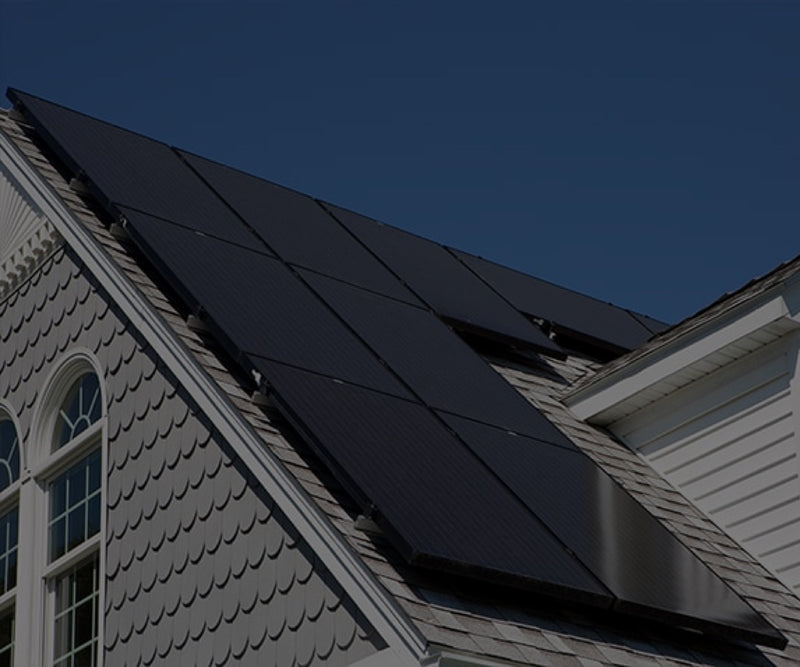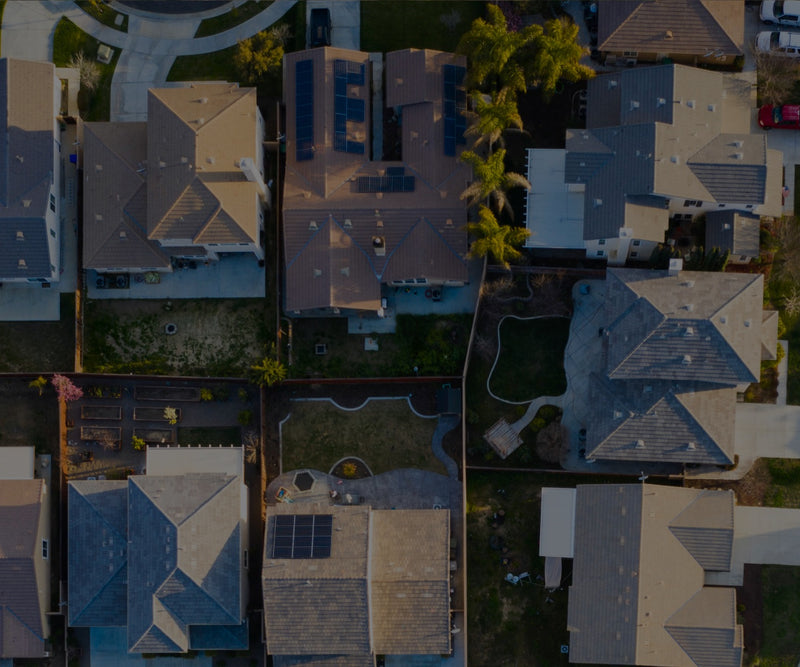The Benefits of Solar Energy and How to Leverage Them

It's no secret that solar power is great for the environment, but that's not the only reason to invest in solar panels! Installing your own solar power system allows for greater independence from the utility grid, and for the typical homeowner, it is often more affordable than utility power.
Here are the key benefits of solar energy that make it an attractive option for homeowners.
Benefits of Solar Energy to the Environment
For many people, solar power is synonymous with green energy. By using solar panels to generate power from the sun, you’ll reduce your consumption of fossil fuels like coal, oil, and gas. Every solar system that goes into commission reduces harmful CO2 emissions from these “dirty” fuel sources.
In addition, solar power is renewable ‒- it can generate electricity without depleting the original source of power (the sun). That makes it a more sustainable solution than non-renewable energy from fossil fuels.
If you are curious exactly what kind of positive impact your system could have on the environment, check out EPA's Greenhouse Gas Equivalency Calculator. According to this calculator, a typical solar system that produces 900 kWh/mo. of energy would offset the CO2 emissions from 861 gallons of gasoline each year.
This calculator gives 21 different offset examples, so be sure to check it out if you want to explore how your solar system can have a direct positive impact on the environment. All you need to do is enter your energy usage in kWh (kilowatt-hours), which can be found on your electric bill.
Economic Benefits of Solar Energy
Not only is solar great for the environment, but it can also save you quite a bit of money by reducing or completely eliminating your monthly electric bill. It’s cheaper to produce your own electricity than to buy it from the utility company, and over time, those savings can add up to pay back your initial investment into the system.
In fact, grid-tied properties (those that draw power from the public utility grid) can pay back their initial system cost in 7-10 years for self-installed systems, or 10-15 years for professionally installed systems.
Since solar panels are warrantied for 25+ years, grid-tied property owners can expect to turn a significant profit after the initial investment into solar has been recovered.
If you would like to figure out exactly how much money your own solar system could save on energy bills, check out our step-by-step guide to calculating solar payback period and ROI.
Energy Independence
Another reason people go solar is to gain independence from the grid and establish full control over the power they generate.
One of the benefits of solar energy is that it can provide power to remote off-grid locations with no access to the grid.
With a grid-tie solar system, the energy generated by solar panels is stored in the public utility grid. But by adding a battery bank, you can store energy on-site, giving you 100% control over the production of your electricity from start to finish.
That means solar is a great solution for off-grid residences, where it would be too expensive to run a power line to a remote off-grid location.
Grid-tie homeowners can also reduce their reliance on the utility grid by adding battery backup to their system. In case of a power outage, the local battery bank takes over as an emergency short-term power supply, keeping your appliances running uninterrupted during an outage.
Shield Against Rising Rates
According to Statista, the cost of electricity has risen an average of 2.1% per year between 2000 and 2020.
That may not sound like much, but keep in mind the rate increases compound each year. A customer paying 10 cents per kWh in 2000 would have seen that rate balloon to 15.47 cents/kWh in 2020, just over a 50% increase.
By going solar, you're no longer at the mercy of rising electricity costs. Once you make your initial investment into solar, you'll be immune to yearly rate increases from your utility provider.
Though we don't account for this in our payback period calculations (mainly because we can't claim to be able to predict the future with any accuracy), factoring in the rising cost of electricity makes solar power even more financially appealing.
Increased Property Value
Should you decide to sell your home in the future, studies have shown that solar-powered homes sell for a premium, as homebuyers recognize the value that free electricity adds to the home.
On average, solar-powered homes fetch 3.74% (or about $15,000) more than non-solar homes with comparable specs. That means you don’t have to live in your home for the 25+ year lifespan of your system to enjoy the financial benefits of solar panels. If you decide to move, solar will boost the listing price of your home, giving you an opportunity to recoup some or all of the up-front costs of going solar.

Solar Calculator

Which Solar Kit Do I Need?
GET STARTED WITH SOLAR
WE’LL HELP YOU FIGURE OUT YOUR SOLAR NEEDS!
Fill out the form for a complimentary solar quote that includes a custom satellite layout, system design and a breakdown of total project cost and estimated savings.
